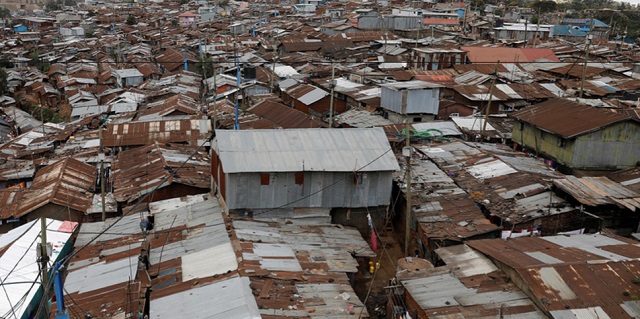
They are next in the fight against the coronavirus
| MAIMUNAH MOHD SHARIF | The spread of COVID-19 has transformed many of the world’s great cities into tragic household names as their reported cases and deaths rise: Wuhan, Milan, Madrid, New York City, and more. But as the pandemic continues in the weeks and months to come, those relatively affluent cities will be joined by others with far more challenging conditions.
If, as predicted, the center of the pandemic moves from Europe and North America to Africa, Asia, and Latin America, the world’s informal settlements — such as Rio de Janeiro’s favelas, Mumbai’s slums, and Johannesburg’s townships — will find themselves on the front line of the health crisis. There are signs this may already be starting. Indian health authorities have confirmed cases in Dharavi, the Mumbai slum made famous in “Slumdog Millionaire.”
There are an estimated 1 billion people worldwide living in informal settlements or slums, and it is clear that the World Health Organisation’s recommended preventive measures against contracting COVID-19 are often almost impossible to implement in these neighborhoods.
Unreliable access to running water and the cost of soap — let alone hand sanitizer — make regular hand-washing a major challenge. Overcrowded housing, the need to visit communal water points and toilets, and narrow alleyways make it impossible to implement physical-distancing guidelines. Livelihoods often depend on daily wages from street vending or informal labor, so a lockdown means going hungry.
We have already seen how this unprecedented global health crisis has forced the hand of more affluent cities. After years of stalling, as housing prices have become unaffordable and homelessness has reached catastrophic levels, states of emergency caused by the pandemic have yielded rapid responses. Local, regional, and national governments across Europe and North America have instituted moratoriums on evictions for tenants, temporarily suspended utility shut-offs, and installed hand-washing stations and portable toilets at homeless encampments. They have also quickly increased their capacity in homeless shelters so that people can sleep at least 2 meters apart and have acquired vacant lodgings as quarantine sites.
Now is the moment for national and local governments in the global south, in partnership with the private and nonprofit sectors, to act immediately by delivering the basic human rights of water, sanitation, and adequate housing in these informal settlements before major outbreaks occur. And members of the international community need to step up to provide the critical support that these authorities need. They must urgently supply informal settlements with soap, water, toilets, showers, disinfectant, masks, and hand sanitizer. If piped water is unavailable, they can temporarily use water tankers.
In many low- and middle-income countries, governments can repurpose existing buildings such as shuttered schools, shops, and community centers to provide emergency shelter. They can turn city parks and sports facilities into living spaces for the isolation or care of nearby slum communities and stop forced evictions, as “de-densification” or “decanting” measures will lead to the unintended consequence of further spreading COVID-19.
As I have learned from my time as a mayor in Malaysia, communities in informal settlements are very resilient because they are close-knit and well organised. While the spreading of mutual-aid networks in better-off cities where neighbours did not previously know each other is encouraging, informal settlements have always functioned through communal living, and this will be these communities’ best weapon against COVID-19. Governments need to bring in these key partners to deliver public health messages and coordinate the response. Local knowledge is crucial when formulating and implementing preventive measures tailored to the realities of informal settlements.
For example, volunteers across Africa — such as those with Shack/Slum Dwellers International’s Know Your City project — conduct community censuses that should be leveraged to disseminate vital public health information. Communities can monitor the spread of the coronavirus and decide on the use of available space for quarantining.
People in informal settlements are as eager to protect the health and welfare of their fellow residents as anyone else. What the world can and must do is urgently give them some measure of economic security to undertake this critical work.
Now more than ever is the time for governments at all levels to fulfill their commitments to house everyone and ensure they have access to basic services, no matter their means. While it should not take a public health emergency to spur such action, lasting improvements in the lives of slum dwellers would leave the entire post-pandemic world better off.
****
Maimunah Mohd Sharif is the executive director of UN-Habitat and former mayor of Penang, Malaysia.
Source: Devex, a media platform for the global development community.
 The Independent Uganda: You get the Truth we Pay the Price
The Independent Uganda: You get the Truth we Pay the Price





